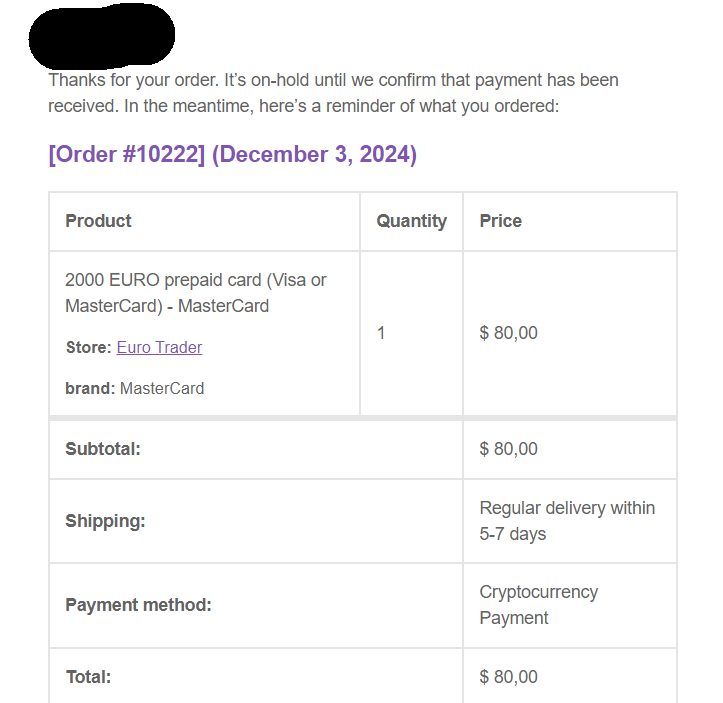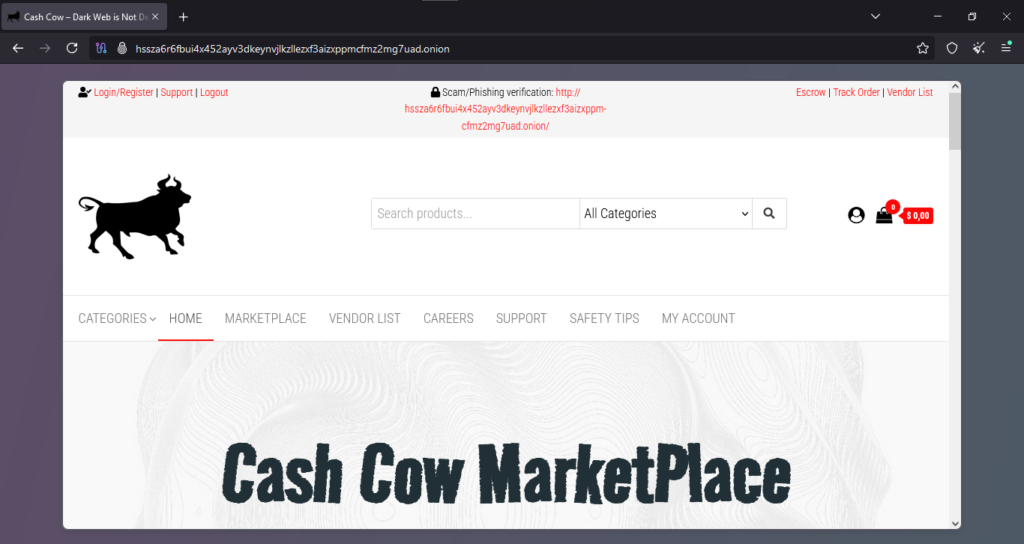Table of Contents
ToggleCash Cow MarketPlace – TOR Scam Report (78)
Onion Link : http://hssza6r6fbui4x452ayv3dkeynvjlkzllezxf3aizxppmcfmz2mg7uad.onion/
Scam Report Date : 2025-01-08
Client Scam Report Breakdown
Original Scam Report :
The client reported an attempt to purchase credit card data (“cc”) online, which ultimately resulted in fraud. According to the client, the purchased card data was never delivered as promised by the seller. This brief description provides a foundation to explore the nature of the scam, its potential mechanisms, and the terminologies involved.
Photos :

Analysis of the Scam Incident
The client’s report highlights a common fraudulent practice in online black markets or deep web marketplaces, where the promise of delivering illicit goods or services often serves as bait. In this case, the term “cc” likely refers to credit card data, a colloquial abbreviation frequently used in forums and marketplaces that traffic in stolen financial information. This term encompasses sensitive information from credit cards, including cardholder names, card numbers, expiration dates, and CVV codes, typically sold for fraudulent purposes.
The phrase “got scam” indicates the client experienced deception or fraud. Based on the report, the seller failed to deliver the promised product, suggesting a non-delivery scam. This type of scam involves collecting payment from buyers without fulfilling the transaction. Such scams are prevalent in environments with minimal oversight, like online marketplaces for illicit goods, where buyers have limited recourse if defrauded. Additionally, the client did not specify the platform or payment method used, but typical scams of this nature often exploit cryptocurrencies due to their relative anonymity and irreversibility.
Definition of Key Terms and Conclusion
To provide clarity, the following terms are crucial to understanding the report:
- Credit Card Data (cc): Stolen or fraudulently obtained information about a credit card, often sold online for unauthorized purchases or identity theft.
- Non-Delivery Scam: A fraudulent transaction where the seller takes payment but fails to deliver the promised goods or services.
- Deep Web Marketplaces: Platforms accessible via specialized software (e.g., Tor) that often facilitate the trade of illegal or restricted goods.
- Cryptocurrency Payments: A favored payment method for scams due to its pseudonymous nature, making it difficult to trace or reverse transactions.
In conclusion, the client fell victim to a non-delivery scam during an attempt to purchase credit card data online. This incident underscores the risks inherent in transactions involving illegal goods, particularly on unregulated platforms. The lack of enforcement mechanisms and anonymity of sellers makes recovery of funds highly improbable. Raising awareness about these risks can help potential buyers avoid similar outcomes and reduce overall participation in such illicit markets.






